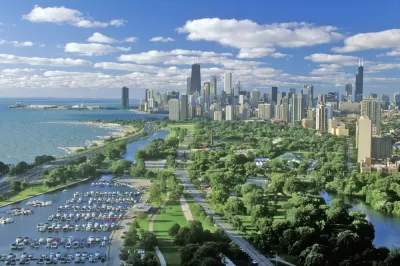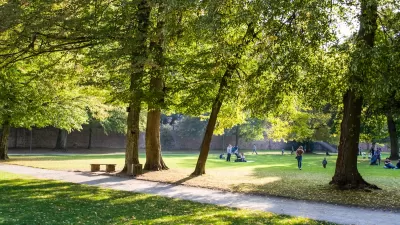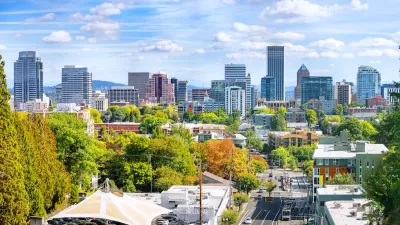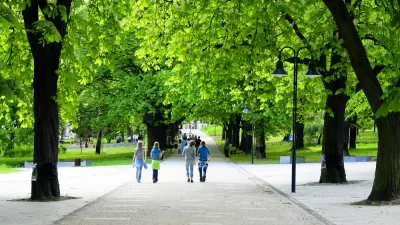Results of a new survey suggest that there are benefits to be reaped from a focus on climate change.

According to a new report published by Natural Areas Conservancy, the Trust for Public Land, and Yale School of Forestry and Environmental Studies, forestry professionals could benefit greatly from more information about climate change, among other topics. The survey, reports Amanda Kolson Hurley, "represented 125 organizations in 110 cities."
"Societal issues such as green-space access and the urban heat-island effect often aren't integrated into management of urban forests," details Hurley. "Forest managers need more data on climate change, pests, and other factors. They need more funding. And they spend much of their time dealing with invasive species and trash."
When asked about factors in decision making, 61 percent of survey respondents cited conservation of native species as one of the top three factors they consider. "By contrast, climate-change projections and the urban heat-island effect were not considered at all by large shares of respondents (47 and 53 percent, respectively)."
So, could more pertinent data on climate change effect the work of forest managers? Not dramatically or instantly, says Hurley. "Even forest managers who have robust information may not be able to act on it as much as they'd like, because they're so busy removing trash and fighting invasive species such as honeysuckle and kudzu. Those activities leave less time for practices like soil amendment, which improves soil and plant health."
Recommendations from the report's organizers include improving access to urban forests among low-income communities, prioritizing forest safety, including forestry management in urban resiliency planning, and nation-wide budget increases for urban forestry management.
FULL STORY: America's Management of Urban Forests Has Room for Improvement

Maui's Vacation Rental Debate Turns Ugly
Verbal attacks, misinformation campaigns and fistfights plague a high-stakes debate to convert thousands of vacation rentals into long-term housing.

Planetizen Federal Action Tracker
A weekly monitor of how Trump’s orders and actions are impacting planners and planning in America.

In Urban Planning, AI Prompting Could be the New Design Thinking
Creativity has long been key to great urban design. What if we see AI as our new creative partner?

Cal Fire Chatbot Fails to Answer Basic Questions
An AI chatbot designed to provide information about wildfires can’t answer questions about evacuation orders, among other problems.

What Happens if Trump Kills Section 8?
The Trump admin aims to slash federal rental aid by nearly half and shift distribution to states. Experts warn this could spike homelessness and destabilize communities nationwide.

Sean Duffy Targets Rainbow Crosswalks in Road Safety Efforts
Despite evidence that colorful crosswalks actually improve intersection safety — and the lack of almost any crosswalks at all on the nation’s most dangerous arterial roads — U.S. Transportation Secretary Duffy is calling on states to remove them.
Urban Design for Planners 1: Software Tools
This six-course series explores essential urban design concepts using open source software and equips planners with the tools they need to participate fully in the urban design process.
Planning for Universal Design
Learn the tools for implementing Universal Design in planning regulations.
Appalachian Highlands Housing Partners
Gallatin County Department of Planning & Community Development
Heyer Gruel & Associates PA
Mpact (founded as Rail~Volution)
City of Camden Redevelopment Agency
City of Astoria
City of Portland
City of Laramie





























